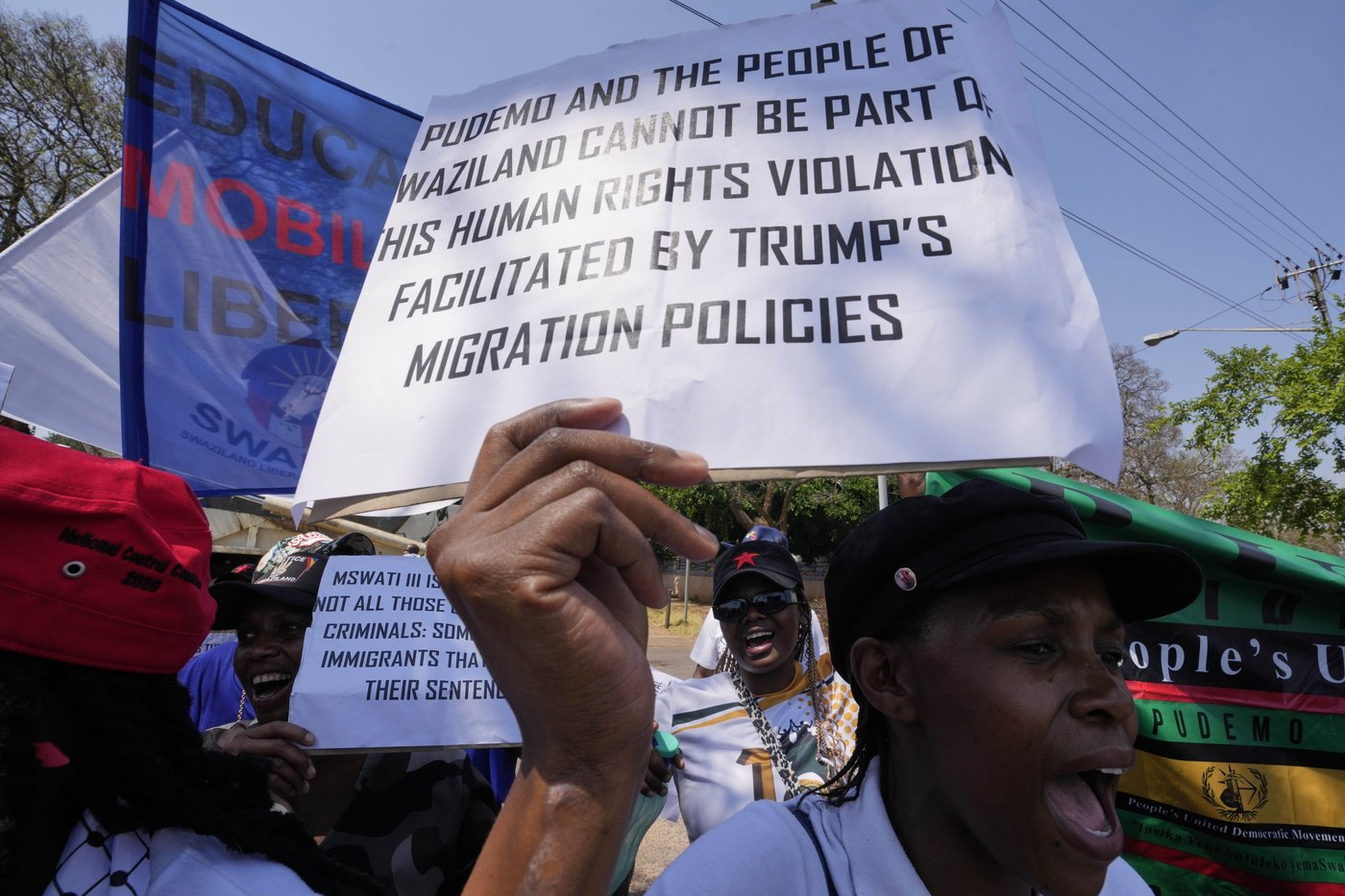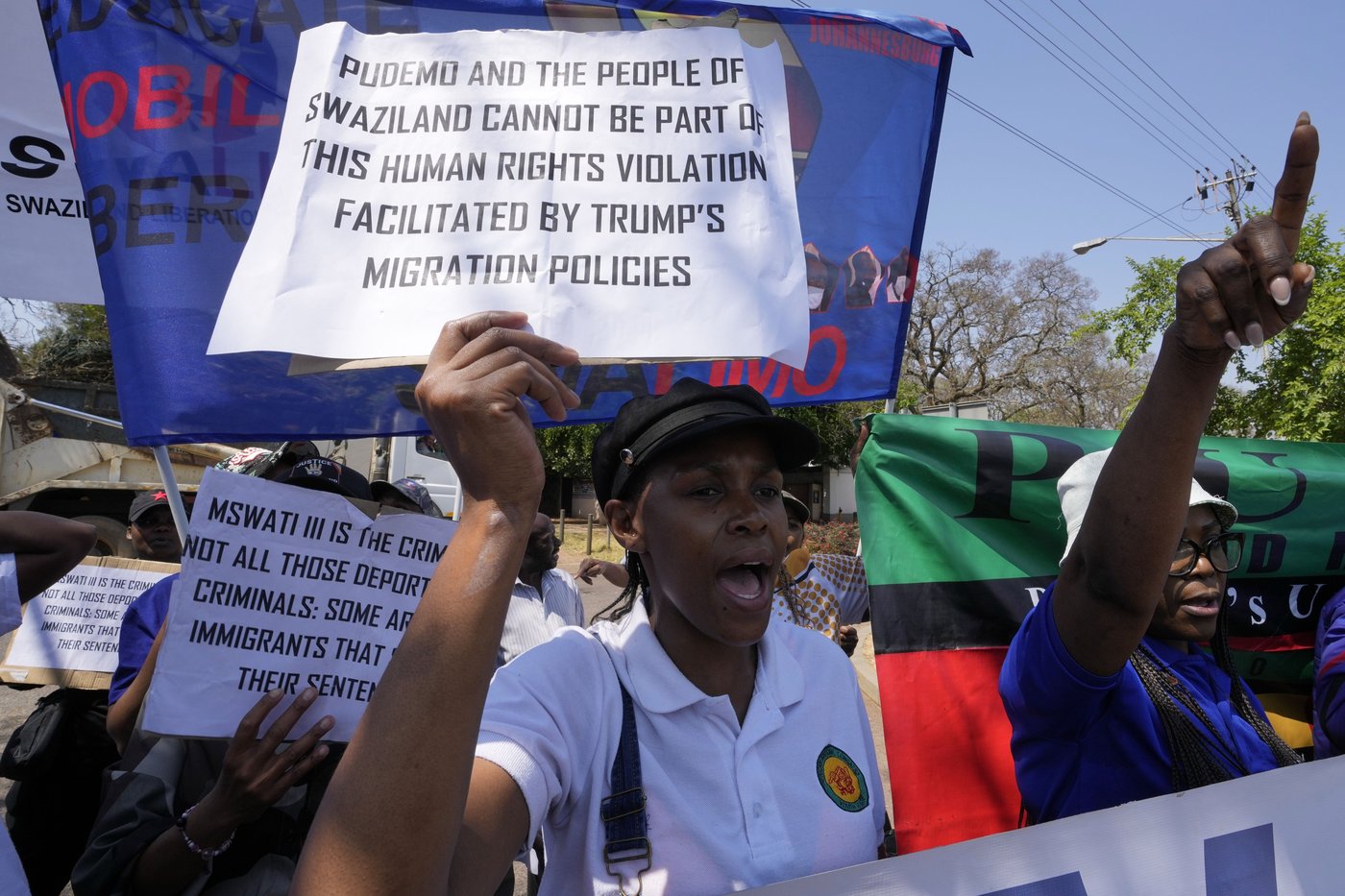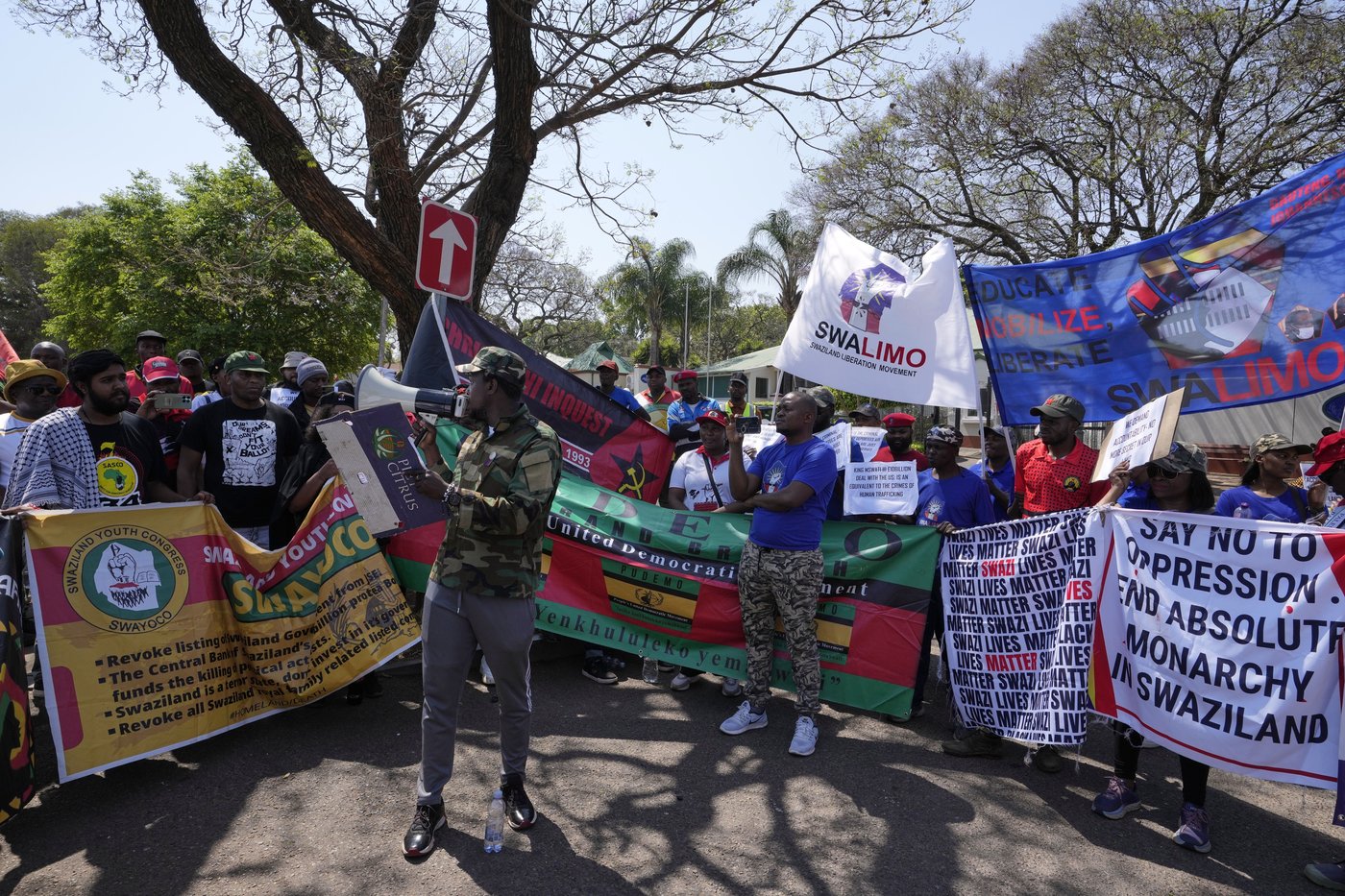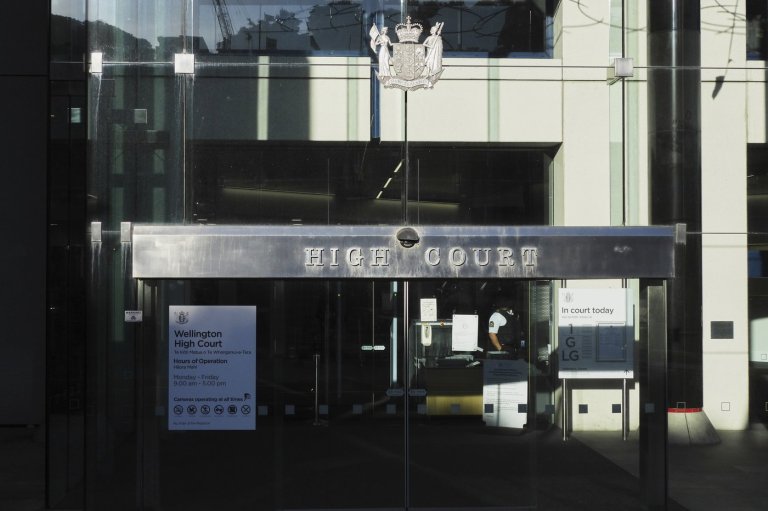
Eswatini activists protest US deportation deal at embassy in South Africa
PRETORIA (AP) — A group of about 100 pro-democracy activists from Eswatini protested Friday at the U.S Embassy in South Africa’s capital over their country’s deal to receive five immigrants deported by the U.S.
The activists likened the arrangement to human trafficking, and said their country’s absolute monarch, King Mswati III, entered into the deal without consulting parliament. They also alleged he is secretly obtaining benefits from the arrangement that are not being shared with the Eswatini people.
The five men were deported to Eswatini in July and are currently being held at a maximum-security prison where their lawyers allege they have not been granted access to see them.
The deportations are part of the US administration’s expanding third-country program to send migrants to countries in Africa that they have no ties with to get them off U.S. soil.
The U.S. administration wants to deter immigrants from entering the country illegally and to deport those who already have done so, especially those with criminal records who cannot easily be sent to their home countries.
The U.S. government has said that the five immigrants sent to Eswatini — from Vietnam, Jamaica, Laos, Cuba, and Yemen — all had been convicted of serious crimes, including murder and robbery. and that their home countries did not want them. Lawyers for the deportees have disputed that the home countries were unwilling to accept them.
Since July, the U.S. has deported migrants to South Sudan, Eswatini and Rwanda, while a fourth African nation, Uganda, says it has agreed to a deal in principle with the U.S. to accept deportees.
The protesters, including members of exiled pro-democracy groups, said they decided to stage their protest in South Africa because any such protests would be quashed by security forces in Eswatini, where political parties are banned.
They brandished placards and posters demanding that the deportees be removed to their countries of origin, while seeking to underline their drive for democratic reforms in their country.
They also called on neighboring countries in Southern Africa to put pressure on King Mswati III to reverse this decision and not enter into any agreements with the U.S. to receive more deportees.
One of the organizers of the protest, Philile Khumalo, said the deal to receive the deportees was steeped in secrecy.
“We call this a shadowy deal because literally they were dropped with a massive US plane at 2:30 in the morning and parliament did not even know about it. This was never even debated or brought to parliament,” Khumalo said.
The protesters also claimed there were plans by the government to receive even more deportees to the tiny nation.
The Eswatini government has said the deportees will eventually be moved to their countries of origin, which would undermine claims by the U.S. government that those countries have been unwilling to receive the deportees.



Join the Conversation!
Want to share your thoughts, add context, or connect with others in your community?
You must be logged in to post a comment.

















